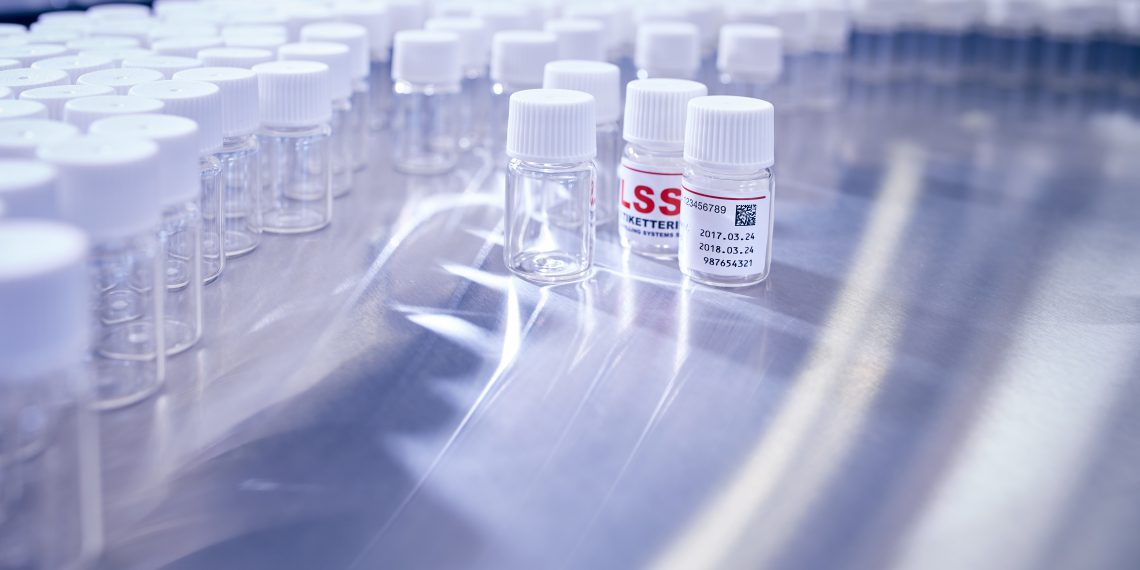The LSS Vial and Bottle Labeller is specified for vials and bottles made of glass or plastic with a product diameter between 14 and 35 mm and a minimum height of 30 mm. The machine labels up to 250 vials or bottles per minute. The LSS Vial and Bottle Labeller is available both as an off-line or in-line unit. Due to its small footprint and modular design it can be easily integrated into existing production environments.
Designed for efficient production
The labeller achieves maximum efficiency not only during the period of time when the machine is running but also by enabling quick and safe batch start / stop, format changes, line clearance, cleaning, maintenance and service. The labelling solution optionally features format parts for multiple product sizes, print on label with thermal transfer printer or laser. Further options include a height adjustable version of the labeller.
User-friendly operation through a color HMI
The main HMI is on the operator side of the Vial and Bottle Labeller. It is duplicated and the additional HMI can be viewed from the service position. Format changing is convenient as no time consuming mechanical adjustments need to be performed manually. On the HMI a predefined format has to be selected and only a few format parts have to be replaced. All components that require positioning are on motor driven spindles. They will automatically be adjusted when a format is loaded. Several large doors in the machine cover on all sides make the LSS Vial and Bottle Labeller easy to access for operation, line clearance, service or maintenance. All components to where access is required are within short reaching distance. Line clearance is comfortable as the machine stands out with no hidden inspection and control slots, openings and visible wires and air hoses.
Vision inspection of the label and the vial or bottle
In the HMI a visualized shift register for labels, vials and bottles can be monitored. The shift register is related to the integrated control and allows vision inspection of the label after it has been printed but before it is applied to the vial or bottle. The printed information, label ID etc. are inspected. Non-approved labels are rejected before they are applied at the label reject station. The functionality of the reject station is also monitored by counter control sensors. After the label has been applied a vision inspection of the vial or bottle is executed. The presence of the label is inspected, its correct position as well as the presence of the cap. Only approved vials and bottles are allowed to leave the index wheel whereas non-approved vials and bottles are rejected at the reject station. Counter control sensors monitor the functionality of the reject station.

















